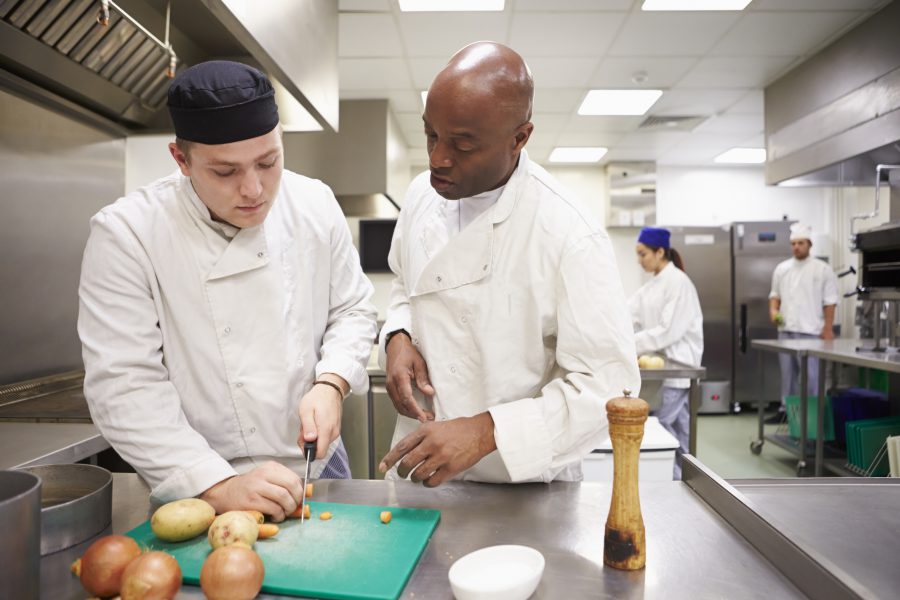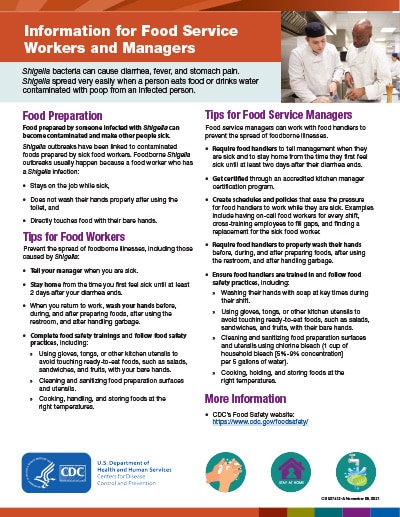Information for Food Service Workers and Managers
Shigella bacteria can cause diarrhea, fever, and stomach pain. Shigella spread very easily when a person eats food or drinks water contaminated with poop from an infected person.
Food prepared by someone infected with Shigella can become contaminated and make other people sick.
Shigella outbreaks have been linked to contaminated foods prepared by sick food workers. Foodborne Shigella outbreaks usually happen because a food worker who has a Shigella infection:
- Stays on the job while sick,
- Does not wash their hands properly after using the toilet, and
- Directly touches food with their bare hands.

Tips for Food Workers
Prevent the spread of foodborne illnesses, including those caused by Shigella:
- Tell your manager when you are sick.
- Stay home from the time you first feel sick until at least 2 days after your diarrhea ends.
- When you return to work, wash your hands before, during, and after preparing foods, after using the restroom, and after handling garbage.
- Complete food safety trainings and follow food safety practices, including:
- Using gloves, tongs, or other kitchen utensils to avoid touching ready-to-eat foods, such as salads, sandwiches, and fruits, with your bare hands.
- Cleaning and sanitizing food preparation surfaces and utensils.
- Cooking, handling, and storing foods at the right temperatures. Learn the four steps to food safety.
Tips for Food Service Managers
Food service managers can work with food handlers to prevent the spread of foodborne illnesses.
- Require food handlers to tell management when they are sick and to stay home from the time they first feel sick until at least two days after their diarrhea ends.
- Get certified through an accredited kitchen manager certification program.
- Create schedules and policies that ease the pressure for food handlers to work while they are sick. Examples include having on-call food workers for every shift, cross-training employees to fill gaps, and finding a replacement for the sick food worker.
- Require food handlers to properly wash their hands before, during, and after preparing foods, after using the restroom, and after handling garbage.
- Ensure food handlers are trained in and follow food safety practices, including:
- Washing their hands with soap at key times during their shift.
- Using gloves, tongs, or other kitchen utensils to avoid touching ready-to-eat foods, such as salads, sandwiches, and fruits, with their bare hands.
- Cleaning and sanitizing food preparation surfaces and utensils using chlorine bleach (1 cup of household bleach [5%-9% concentration] per 5 gallons of water).
- Cookingexternal icon, holding, and storingexternal icon foods at the right temperatures.
English pdf icon[PDF – 1 page]
Español pdf icon[PDF – 1 página]
